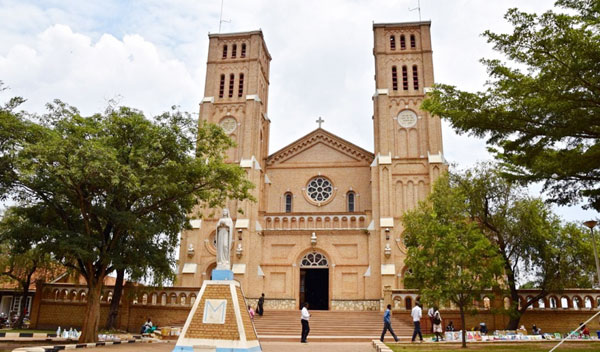
In same the development, the archbishop has also highlighted that the holy sacrament of Eucharist which the catholic church honors as one of her most exalted mysteries have been greatly abused with several rogue practices that have been rather becoming normal.
According to the communication sent out to all parishes, Archbishop Lwanga in conformity with the liturgical and canonical norms of the Church which requires him to fend off abuses in the liturgical life of the Church has issued five decrees noting that they must be followed with immediate effect.
The decree has made it illegal to receive the Holy Communion in the hands. Archbishop Lwanga says that although the church holds the Holy Eucharist in the highest honor, there have been many reported instances of dishonoring the Eucharist that has been associated with its reception.
“It is fitting to return to the more reverent method of receiving the Eucharist on the tongue,” the Archbishop ordered. In some circumstances, the Catholics more so the children who have been receiving the Eucharist in hands could instead take it or part of it to play around with than eating it which is contrary to the teaching of the church.
The decree further guides members of the faith who have not been designated as an extraordinary minister of the communion to stop it, and also halting the celebration of the Eucharist in a non-sacred place unless grave necessity requires otherwise.
At St Joseph Parish in Nansana where the document was read amid silence, it was noted that they have been further guided that Sunday mass will not be conducted in private homes unless it has been granted so by the parish priest.
“On other days, for you to have mass celebrated in your home, the head of that home and his family must receive the Eucharist. Moreover, to avoid scandal, the Eucharist is not to be celebrated in the homes of people in such a situation,” the laity publicity read the document quoting the Archbishop.
The directive also reminds the faithful living in illicit marital cohabitation and those who persist in any grave and manifest sin, not to receive Holy Communion. He further warned the priests and deacons who are not properly vested in the prescribed liturgical vestments to neither concelebrate nor assist the distribution of Holy Communion.
During the reign of Pope John Paul II, the Vatican Congregation for Divine Worship and the Sacraments singled out 28 “grave matters” which put at risk the validity and dignity of the holiest Eucharist. The 65-page instruction, titled the Sacrament of Redemption approved by the pontiff pointed out some abuses more so the grave crimes against the Eucharist are treated as crimes in church law with serious ecclesiastical penalties attached.
 The Independent Uganda: You get the Truth we Pay the Price
The Independent Uganda: You get the Truth we Pay the Price





